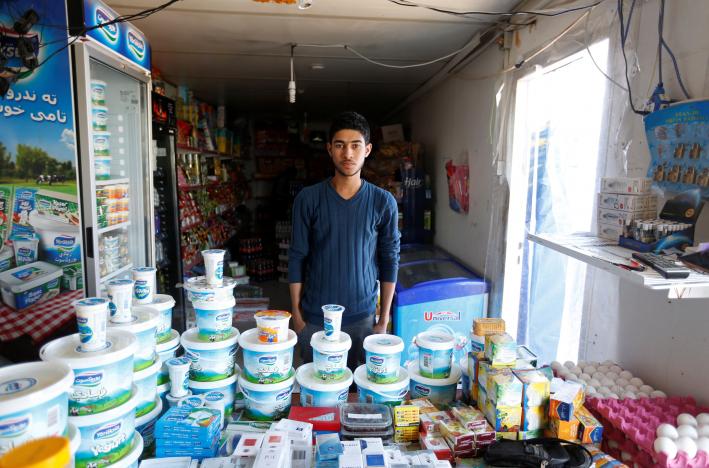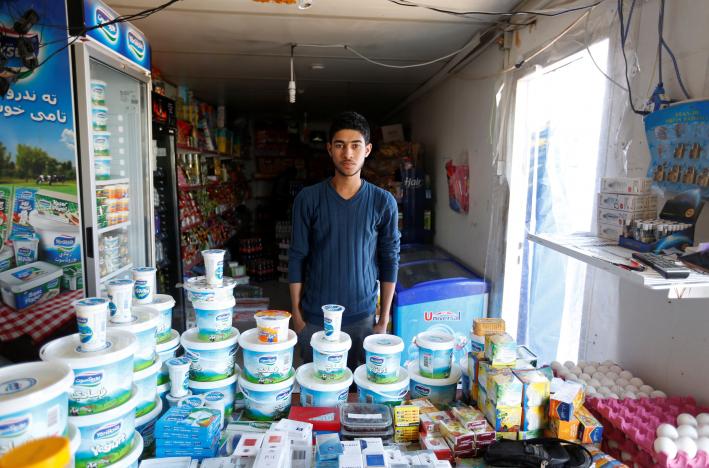Iraqi camp families search for ways to make a living

Saif Ali Abdullah, 19, from Mosul’s al-Shaimaa district, who fled the Islamic State stronghold of Mosul with his family, poses for a photograph at the supermarket where he works in Khazer camp, east of Mosul, Iraq, February 8, 2017. REUTERS/Muhammad Hamed

Aysar Issa has turned his hand to fixing shoes to support his family of eight.
“My brothers and I are working in the camp to survive” he said. “We receive little more than 5,000 Iraqi Dinars ($4.28) a day, but we have no other choice since we cannot return to our village.”
He and his family fled after fighting destroyed their village, Khorsibad, north of Mosul. Like many others in the camp, they arrived with little cash and few possessions. They have had to fend for themselves.
Younis Mahmoud has returned to his old job as a barber – an occupation that was heavily restricted by Islamic State militants.
“I used to work as a barber in Bartella (a largely Christian town outside Mosul), but when Daesh took over in 2014 … shaving beards was forbidden, and there were rules on how to cut hair,” said the 21-year-old. “I was even fined and lashed when I gave a young boy a modern haircut.”
The numbers of people pressing into camps has increased since Iraqi government troops, backed by a U.S.-led coalition, launched an offensive to push Islamic State out of Mosul, the fighters’ main Iraqi stronghold.
More than 500,000 people have fled there and surrounding areas since October, according to government figures provided by the U.N. refugee agency UNHCR.
Medical and humanitarian agencies estimate the total number of dead and wounded – both civilian and military – at several thousand.
Nashwan Yousef fled the mostly Christian village of Qaraqosh, where he owned a supermarket, and headed towards Iraq’s autonomous Kurdish region.
He now lives in Ashti camp in Sulaymaniyah, where he has managed to open another smaller supermarket, with support from the church.
“I will go back to Qaraqosh as soon as it is safe,” he said. “I want to rebuild my destroyed house, even if I have to live in a tent in front of the house until I can do so.”
